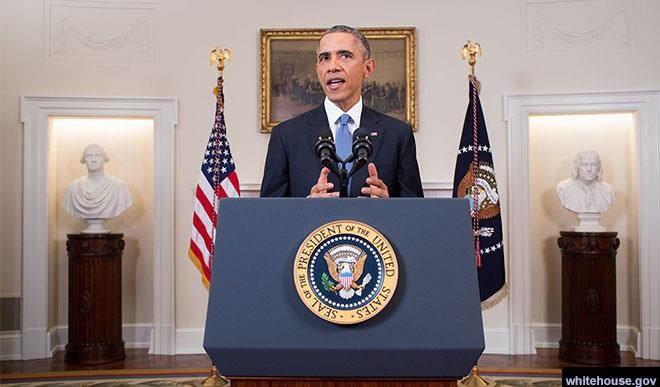Why American isn’t a model for democracy (II)
The United States of America has often touted itself as not only the beacon of democracy but as the model the rest of the world must emulate. In this insightful essay by Professor Pippa Norris, which was first published by Truthout.org, a left-leaning American online news organization, the reader is exposed to the structural and […]


The United States of America has often touted itself as not only the beacon of democracy but as the model the rest of the world must emulate. In this insightful essay by Professor Pippa Norris, which was first published by Truthout.org, a left-leaning American online news organization, the reader is exposed to the structural and systemic problems of America’s democracy. Norris argues that “The US is not a shining example for developing democracies” and that “Many election problems happen long before a single vote is cast.” The article was first published on March 23, 2016 under the title “US Elections Ranked Worst Among Western Democracies; Here’s Why.” Enjoy.
Comparing the US to Other Democracies
Some may be tempted to think headlines are exaggerating the true extent of any problems in America by highlighting negative cases which are actually fairly isolated.
Is there actually more systematic evidence suggesting that American elections are flawed? And how does the U.S. compare with other long-standing democracies worldwide?
New evidence that gives insights into this issue has been gathered by the Electoral Integrity Project. This independent research project is funded by the Australian Research Council’s Laureate award with a team of researchers based at the University of Sydney and Harvard University.
The 2015 annual Year in Election report compares the risks of flawed and failed elections, and looks at how well countries around the world meet international standards. The report gathers assessments from over 2,000 experts to evaluate the perceived integrity of all 180 national parliamentary and presidential contests held between July 1, 2012 to December 31, 2015 in 139 countries worldwide. These include 54 national elections held last year.
Americans often express pride in their democracy, yet the results indicate that domestic and international experts rate the U.S. elections as the worst among all Western democracies.
Denmark, Finland, Norway and Sweden are at the top of the ranking, all scoring over 80 on the 100 point PEI Index. Several democracies from diverse regions and cultures — for example, Israel and Canada — are ranked in the middle of the pack.
But the U.S. scores 62, a full 24 points lower than Denmark and Finland. The UK also performs fairly poorly, along with Greece and Australia. One reason for this is that proportional electoral systems — which translate votes into seats on a proportional basis — usually tend to score higher as they provide more inclusive opportunities for smaller parties. All of the Nordic countries, for example, use a proportional system.
Comparisons can also be drawn with all 180 parliamentary and presidential elections included in the latest report, covering 139 countries worldwide. The 2012 U.S. presidential election ranks 60th out of 180 elections worldwide, close to Bulgaria, Mexico and Argentina.
This is no one-time shortcoming. The 2014 U.S. Congressional elections rank even worse, 65th out of 180 worldwide.
By contrast, elections in many newer democracies are seen by experts to perform far better in the global comparison, such as in Lithuania (ranked 4th), Costa Rica (6th), and Slovenia (8th).
What Stages of US Elections Are Weakest?
What produces these results? To explore this issue, EIP also conducted a second survey with almost 200 experts to compare the performance of the 2014 congressional elections across 21 U.S. states.
The results show that the worst problem across most states involved gerrymandering of district boundaries to favor incumbents. The mean score for American states was just 42 on a 100-point scale.
Other weaknesses concerned whether electoral laws were unfair to smaller parties like the Green Party, favored the governing party, or restricted voter’s rights.
Campaign finance — for example, whether parties and candidates had equitable access to public subsidies and political donations — was also seen by experts as a problem.
Finally voter registration was also viewed critically. Issues here included whether the register itself was accurate with, in some cases, citizens not listed and, in others, ineligible electors registered.
By contrast, voting processes were rated more favorably. Factors here included whether any fraudulent votes were cast, whether the voting process was easy, whether voters were offered a genuine choice at the ballot box, along with the vote count and post-election results. These last two measures each received a high score of 85.
Much debate in the U.S. focuses upon potential risks of fraud or voter suppression at the ballot box, but in fact experts rate earlier stages of American elections more critically.
Why Are US Elections So Bad?
Why are American elections particularly vulnerable to these sorts of problems? It is a complex story.
In my book, Why Elections Fail, I argue that a large part of the blame can be laid at the door of the degree of decentralization and partisanship in American electoral administration. Key decisions about the rules of the game are left to local and state officials with a major stake in the outcome. For example, gerrymandering arises from leaving the processes of redistricting in the hands of state politicians, rather than more impartial judicial bodies.
Moreover, the role of money in American campaigns has become progressively deregulated in recent decades, thanks in part to the Citizens United Supreme Court decision, while election costs have spiraled. Add to that the fuel of an inflammatory campaign by Donald Trump, and the prospects for agreement about the outcome of the election become more remote.
Pippa Norris is an ARC laureate fellow, professor of government and international relations at the University of Sydney and McGuire lecturer in comparative politics at Harvard University.
